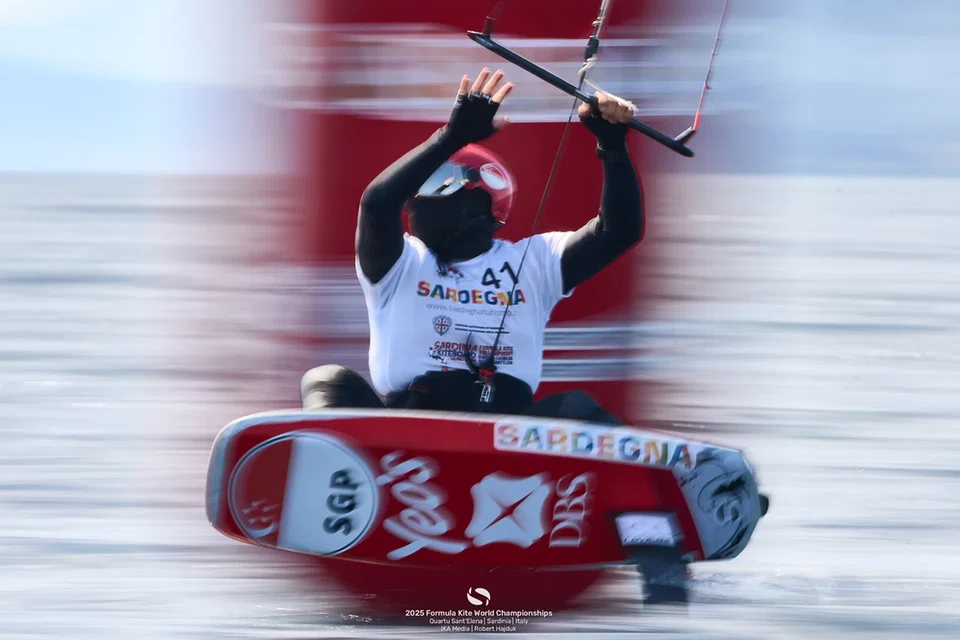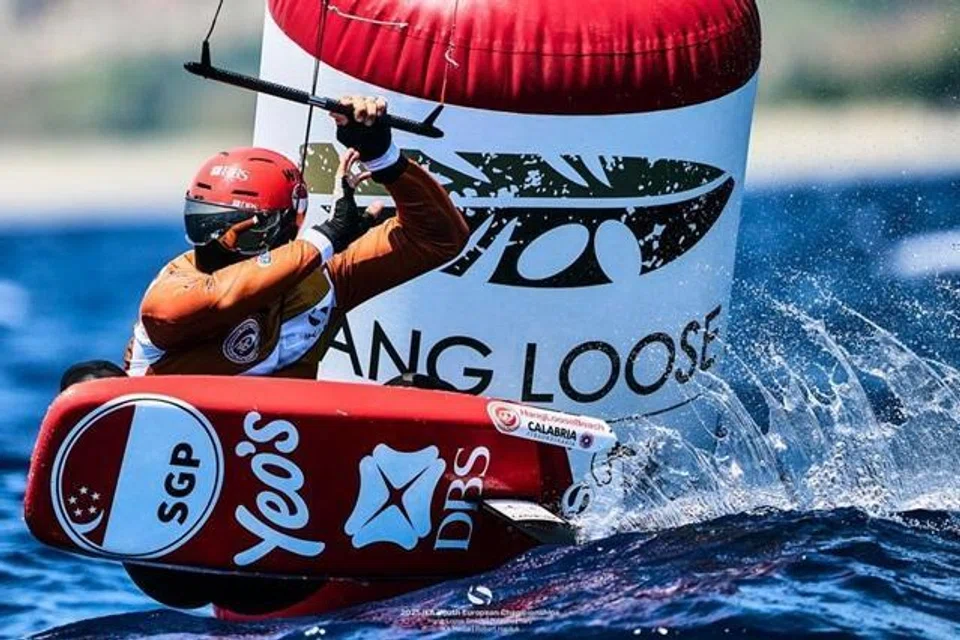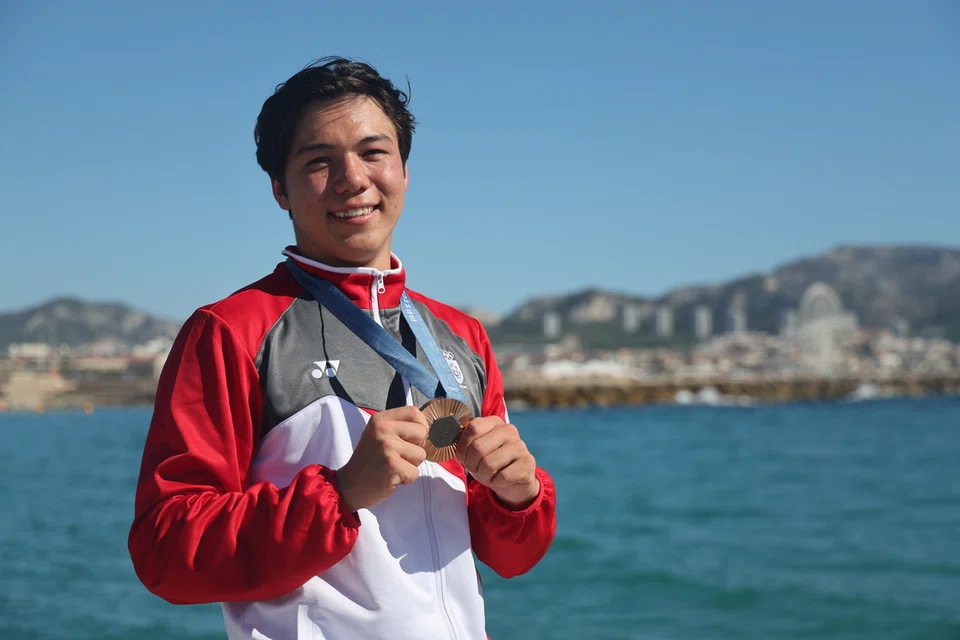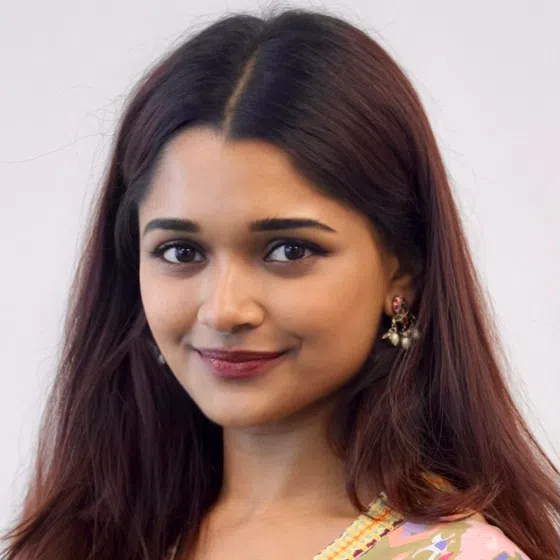There’s a familiar archetype we recognise – the precocious young athlete, barely on the cusp of adulthood, already vaulting into greatness. They’re often hyper-mediated and mythologised in real-time, such as Kylian Mbappe at 19 playing for FIFA in 2018 or like gymnast Simone Biles whose dominance on the international stage has made her a living legend. However, in the case of Maximilian “Max” Maeder, a teenage kite foiler who has already collected world titles and Olympic bronze hardware, the mythology short-circuits a little.
Mr Maeder burst onto the scene in 2023 when, at just 16, he became the youngest athlete ever to win a world title in any Olympic sailing class, clinching gold at the Formula Kite World Championship. Since then, he has been eyeing a third consecutive world title.
“It’s crunch time,” he said ahead of the 2025 Formula Kite World Championship, which began on Sept 30. His life had revolved around this moment for months. Training camps, including one in Italy, dominated his schedule. He’d also made a major coaching change. “The philosophy of how you approach training changes a lot with a different coach, and I think it has been for the better,” he said from a prep camp in Switzerland.
But on Oct 5, Mr Maeder’s bid for a hat-trick came up just short. At Quartu Sant’Elena beach in Italy, he finished second overall, edged out by Italy’s Riccardo Pianosi, who claimed gold. France’s Benoit Gomez completed the podium with bronze.

When asked how he handles the anxieties of big competitions, he said, “Firstly, I occupy myself with what I can control. I train, make sure my gear is ready, make a checklist to prepare myself the best I can.” It’s a tidy psychological trick, one that keeps dread at bay. But it’s not all a trick. “It comes naturally to me,” Mr Maeder said.
This internal scaffolding was built, largely by his family.
“My parents never told me, ‘You’ve got this. You’re going to win.’ They said, ‘We’ve got you. Go do it, fail, win, whatever. Come back. We’ll love you all the same.’” This knowledge that he won’t be loved any less if he didn’t clinch a medal, he said, gave him “rock-solid self-esteem.”
Mr Maeder added that this psychological foundation created a kind of freedom where ambition doesn’t metastasise into desperation. However, he still holds himself to punishing standards. “I give myself the most expectations, they’re higher than what other people expect of me. I feel like it’s a very healthy form of pressure,” he said. “It’s not debilitating. It’s a kind of a driver.”
And yet, he often worries that he isn’t doing enough, or that his work ethic isn’t up to mark, or that he, just like many common folk, spends too much time on his phone.
But just when the narrative teeters into self-punishment, Mr Maeder steps back. “I do have some navel-gazing,” he said. “But I quickly realise I don’t have real problems. I only have things I can be grateful for.” He recalled a conversation he had with his Chinese tutor, who described the brutal working conditions of food delivery drivers back home. “I realised, I’m so lucky. I have to make the most out of it.”
When asked about friendships, he laughed. “What friendships?” he quipped. Mr Maeder is extremely close with his parents and brother, and sees his training team every day. “I don’t stay in one place for too long. I don’t think I’ve stayed in one place more than four months in my entire life.” As a result, any friendships that exist tend to be low-maintenance and shaped by geography and schedules. “I’m okay being alone a little bit. Doesn’t mean I don’t want friends. Just means I don’t need them to stay sane.”
Mr Maeder began kitefoiling at a young age, but the transition to becoming a professional never felt like a sudden shift. “It was gradual,” he recalled. In his early days, he would go up against older, more experienced athletes without feeling intimidated. “I wasn’t doing it professionally, I was just having fun.” And when the moment came to take it seriously, he did so confidently.
What sustains him beyond the foil and the finish line are small rituals of ordinary life. Mr Maeder cooks for himself and often for his teammates.“In Switzerland, I have been cooking every meal.”

To keep busy, he also used to travel with a chess set, though he had to make space for sponsor gear earlier this year. Mr Maeder said he doesn’t keep objects for sentimental reasons. In fact, he doesn’t know where half his medals are. “Some are in Singapore, some in Switzerland, some maybe with family. I never kept count.”
When asked about performance idols, he named Roger Federer – not solely for his skill, but also for his eloquence. “The way he handles situations with grace and speaks in interviews really inspires me,” he said. Still, above all, he added, “I look up to my parents a lot.”
His parents, Mr Maeder said, have evolved alongside him. “They’ve grown as parents and as people.” They now see their journey not just as a personal one, but as something that might serve a greater purpose. “It’s no longer just about us,” he noted.


